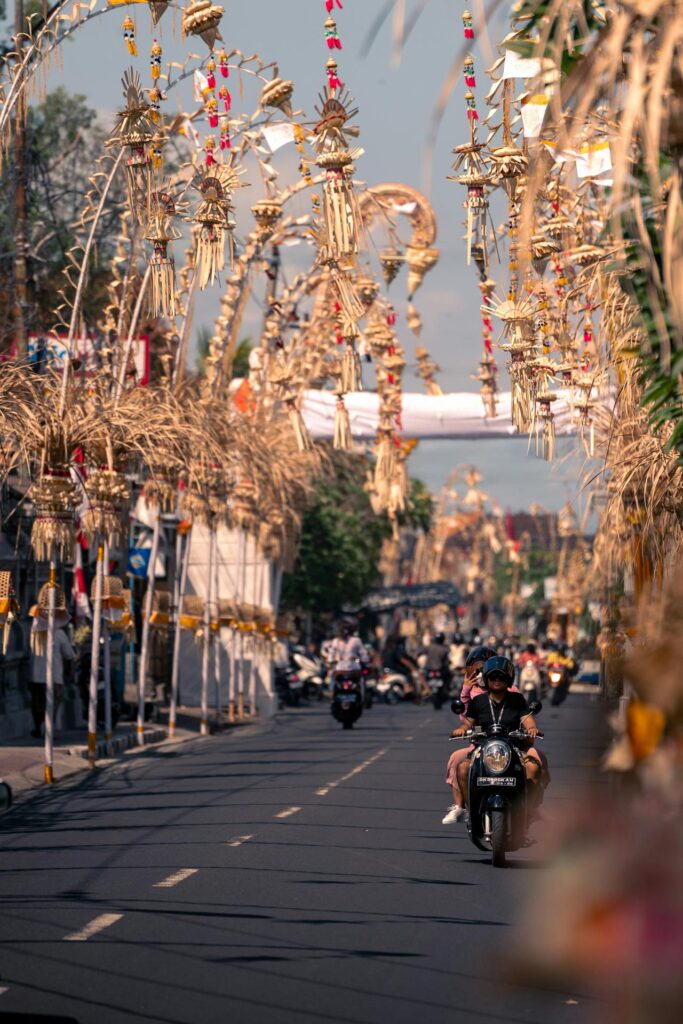A Foreigner’s Surprise: Roosters as the Natural Alarm in Indonesia
Travellers visiting Indonesia, particularly Bali, often experience culture shock, not just from the food or customs, but from the sounds of the morning.
A viral TikTok video by @louandgeorgetravel captured a foreign tourist waking up to the crowing of roosters, geckos, and other animals.
“Lay ins is not an option in Bali! Roosters, geckos, cats, all sorts😂 As much as it’s annoying, there are worst ways to start a morning 🌅,” the caption read.
@louandgeorgetravel Lay ins is not an option in Bali! Roosters, geckos, cats, all sorts😂 As much as it’s annoying, there are worst ways to start a morning 🌅 #traveltok #backpackinglife #travelvlog #travelvlogs ♬ original sound – louandgeorgetravel
Many Indonesians in the comments explained that roosters crow at different times, 9 PM, 1 AM, 3 AM, and 5:30 AM, acting as a natural alarm clock. Some even mentioned local beliefs that associate rooster crows with mystical signs.
For expats and tourists, this might be surprising, especially if they stay in rural or plantation areas. However, the sound of roosters is deeply embedded in Indonesia’s morning culture, signalling the start of daily life.
What Makes Morning in Indonesia Special?

1. The Natural Rhythm of an Indonesian Morning
Mornings in Indonesia, or pagi, are marked by a blend of tranquillity and activity. In the countryside, the cool air, chirping birds, and distant calls of roosters create a peaceful atmosphere.
Meanwhile, cities like Jakarta begin bustling early with street vendors, motorbikes, and the scent of breakfast foods like nasi uduk or bubur ayam.
2. The Role of Roosters in Indonesian Mornings
Roosters crowing at dawn are more than just a wake-up call, they’re part of Indonesia’s rural identity. Their internal circadian rhythm makes them sensitive to light changes, so they crow at sunrise.
In villages, this sound signals farmers heading to fields and traders setting up markets. Some communities even associate rooster crows with good omens.
3. The Contrast Between Rural and Urban Mornings
– Villages: Quiet, with fresh air, rice field views, and traditional activities.
– Cities: Energetic, with traffic, breakfast stalls, and early-morning commuters.
Saying “Good Morning” in Indonesian Language
In Indonesia, the phrase “Selamat pagi” (pronounced suh-lah-mat pah-gee) is the translation and the formal way to say “good morning.” It’s commonly used in workplaces, schools, and when greeting elders.
A more casual version, “Pagi!” is often heard in Jakarta and Bali among friends.
When someone greets you with “Selamat pagi,” the proper response is to repeat the phrase or simply say “Pagi!” back. Learning this basic Indonesian word helps travellers connect with locals and shows cultural respect. Think of it as the word “good” in English greetings such as “Good morning” or “Good afternoon”.
The Cultural Significance of Morning Greetings
Indonesians value politeness, so using “Selamat pagi” correctly makes a good impression. In Bali, you might also hear “Om swastiastu”, a Hindu greeting used at any time of day, including morning.
Understanding these vocabulary and small cultural nuances enhances the travel experience. Also, using the country official language will lead to more fun and more meaningful interactions.
Why Morning in Indonesia is Worth Waking Up For
Whether you’re in a Balinese village or the heart of Jakarta, mornings in Indonesia offer a unique experience. From the natural alarm of roosters to the warmth of a “Selamat pagi”, the early hours capture the country’s charm.
For travellers, embracing the morning, whether through a sunrise beach walk or a local breakfast, is the best way to start the day in Indonesia.

































